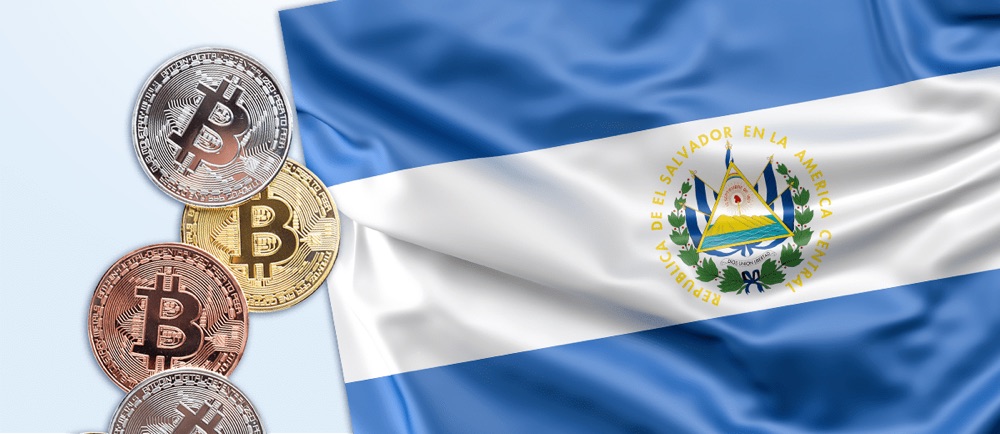
El Salvador Adopts Bitcoin – The Good, the Bad, and the Profit
When El Salvador’s president Nayib Bukele said his country “has the right to move towards the first world,” the citizens probably didn’t think it had anything to do with bitcoin.
Yet, in September, the Central American nation announced its adoption of bitcoin as legal tender. This makes it the second national currency alongside the US dollar, neither of which is a native currency.
From the looks of things, El Salvador has not had a shred of control over its monetary policy. The economy there used to rely on the USD’s performance and the federal reserves. Now, it has to also depend on a cryptocurrency. It’s never a good thing when a government has little to no influence on the money supply which it is using.
There have been repercussions and, of course, attendant analyses of Bukele’s decision. The Salvadorans’ reception of this news was an emotional mix bag.
But are things as bad as they seem? If there were no benefits to integrating bitcoin, why would Bukele even consider it, let alone impose it on his citizens?
Let’s look at some of the economic implications of this event.
Bitcoin Price Stabilization
When we say stabilization, we don’t mean right away. Indeed, as soon as president Bukele made the official announcement, bitcoin dropped by 20% in price. It then continued to teeter for another two weeks before slowing down at $44,000.
This may have caused slight panic among new investors, but those familiar with bitcoin know better. Bitcoin has had more crashes than the computers used to mine it and managed to reemerge every single time.
There’s usually a reasonable explanation for when a crash happens, and that escapes most people. For one, they could have predicted the dip and decided to cash in on the opportunity. Some may have had no confidence in how El Salvador would handle bitcoin and took the easy way out. When supply goes up as opposed to demand, the price will naturally go down.
The Salvadorans may seem at odds with the new normal now, but that should eventually change. According to financial journalists and Bukele himself, Salvadorans spend hundreds of millions of dollars every year in transaction costs when sending money home from overseas.
Sending bitcoin instead would save them an enormous amount of fees. No one can deny this gain regardless of how they feel about the situation. When that starts happening, demand for bitcoin will rise, and if demand is high, the price will naturally follow suit.
Increase in Bitcoin Holding
As a token of encouragement, the Salvadoran government has given its citizens $30 in BTC each. That may not seem like a lot, but there are around 6.5 million people in El Salvador. If half the population holds on to their coins until the dip corrects itself, the country will gain nearly $20 million from this maneuver.
This may potentially lead to massive holdings and purchases among Salvadorans. Investment and trading in bitcoin may also increase, especially when it comes from abroad. The problem with this movement is that it would likely trigger a network overload. If that happens, another crash will occur, and we’d be back to square one.
Illegal Transactions and Tax Exploits
Bitcoin was initially designed to reduce handling costs and third-party institutions. Nowadays, its main appeal is the absence of governmental scrutiny. With that said, El Salvador using bitcoin as a legal tender seems like a walking contradiction.
It could potentially open the floodgate of illegal transactions and shady activities that want to avoid central banks. Scams and crypto fraud could also become prevalent since the population has little knowledge about bitcoin or what to expect.
President Bukele has stated that Salvadorans can do their taxes using bitcoin. This may seem convenient at a glance, but the inherent fluctuations could complicate things. Most people only want a fair return on their taxes, but bitcoin’s volatility will stand in the way of that.
On the flip side, this could expose citizens and even the government to a steady flow of tax exploits. While it’s not uncommon for people to manipulate their taxes, the ambiguous nature of bitcoin will surely amplify the temptation.
Outlaw of Bitcoin Mining
El Salvador’s adoption of bitcoin might lead to many activities, one of which is the surge in mining. Bukele has said he’d use volcanic energy to mine bitcoin and ordered a state-owned company to begin the process.
There are roughly 2 million bitcoins left to mine, and it gets more difficult after each coin. If Salvadorans all started to mine, how many volcanoes would it take before the network is completely full?
We don’t believe any country in the world can afford that amount of energy. It’s one of the reasons China has banned all forms of crypto.
To mitigate energy consumption, El Salvador might have to limit mining to only its government. That means banning private companies from doing it. Doing so would almost guarantee to cause national dissent, but they’re already headed down that road.
Conclusion
From the above speculations, we can conclude three things:
- Adopting bitcoin is only the beginning of El Salvador’s financial journey. Additional regulations must be made to maintain a level of security in the economy. They also have the US dollar as a national currency, so stablecoins like USDC and Tether would soon dominate the market.
- El Salvador won’t be the first country to legalize cryptocurrency. If bitcoin turns out to be the right decision by Bukele, other governments might follow, starting with Central American countries. Panama is already in the process of integrating crypto into its financial system.
- Bitcoin could potentially face another crash in the future. Depending on how quickly Salvadorans adapt to the new currency, bitcoin might crash a lot sooner. On top of the fact that other countries may start doing the same thing, the bubble may burst before we know it.
